LLMs are probably biased
# What is this?
I had this conversation with the Bing wrapped OpenAI GPT-4. I’ve previously explored this technology in software development (coding) applications and found limitations, but it does seem to serve as an efficiency amplifier if one can adapt it into one’s workflow with minimal friction. This time I wanted to test it for insights into human civilization. OpenAI hasn’t been forthcomming about how the thing (GPT-4) was trained (which is concerning), but predecessors (eg, GPT-3) were trained on enormous datasets of human created content. So I figured we should be able to use it to glean some insight into us as a civilization with the right prompting. I’m not sure that’s what happened here, since the conversation took a different turn, but its still kind of interesting.
“LLM” = Large Language Model
# The chat
I’ve been having trouble using OpenAI’s chatgpt interface lately. It seems to error on every other response, so I used Bing instead. I wish there was a better, cleaner way to export a conversation, but I had to rely on these clunky screenshots from the Bing android app.
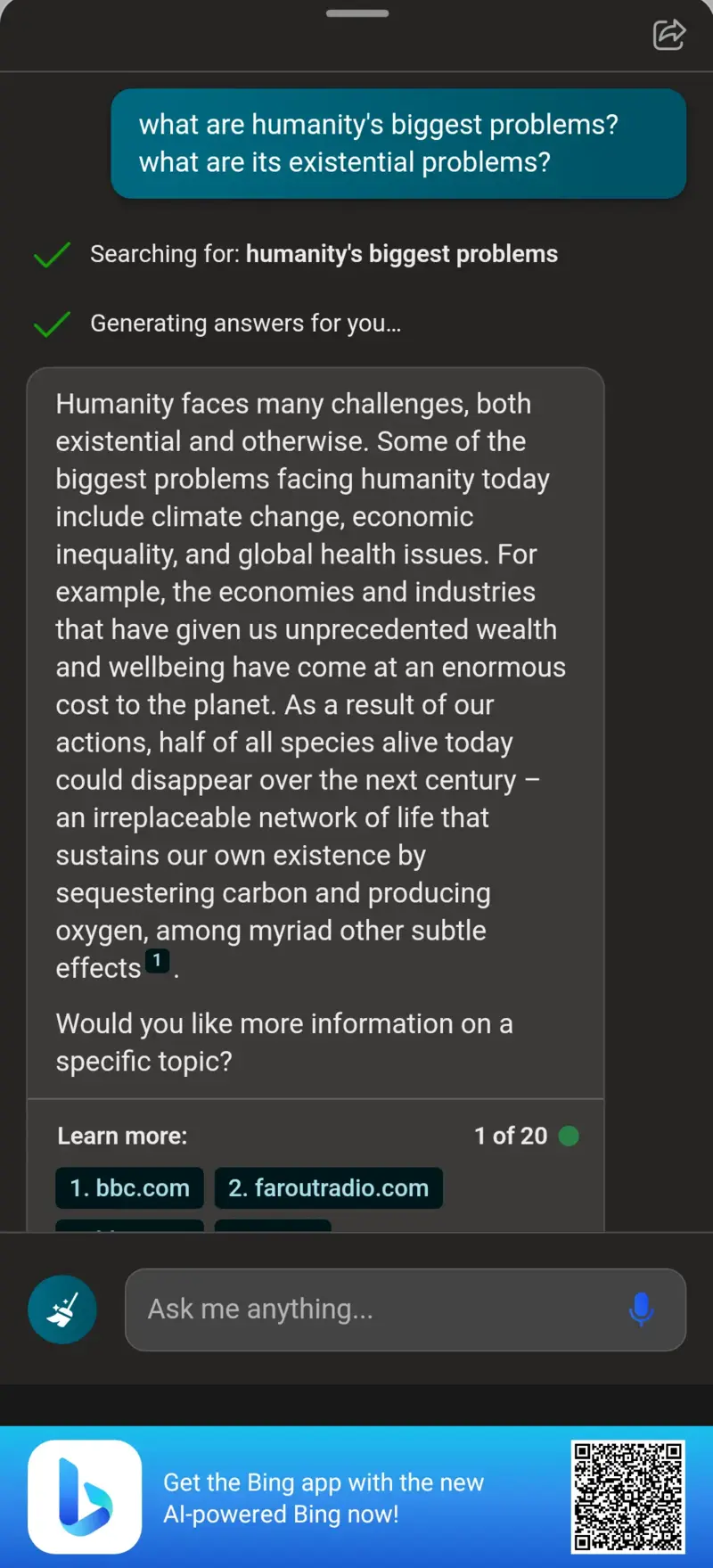
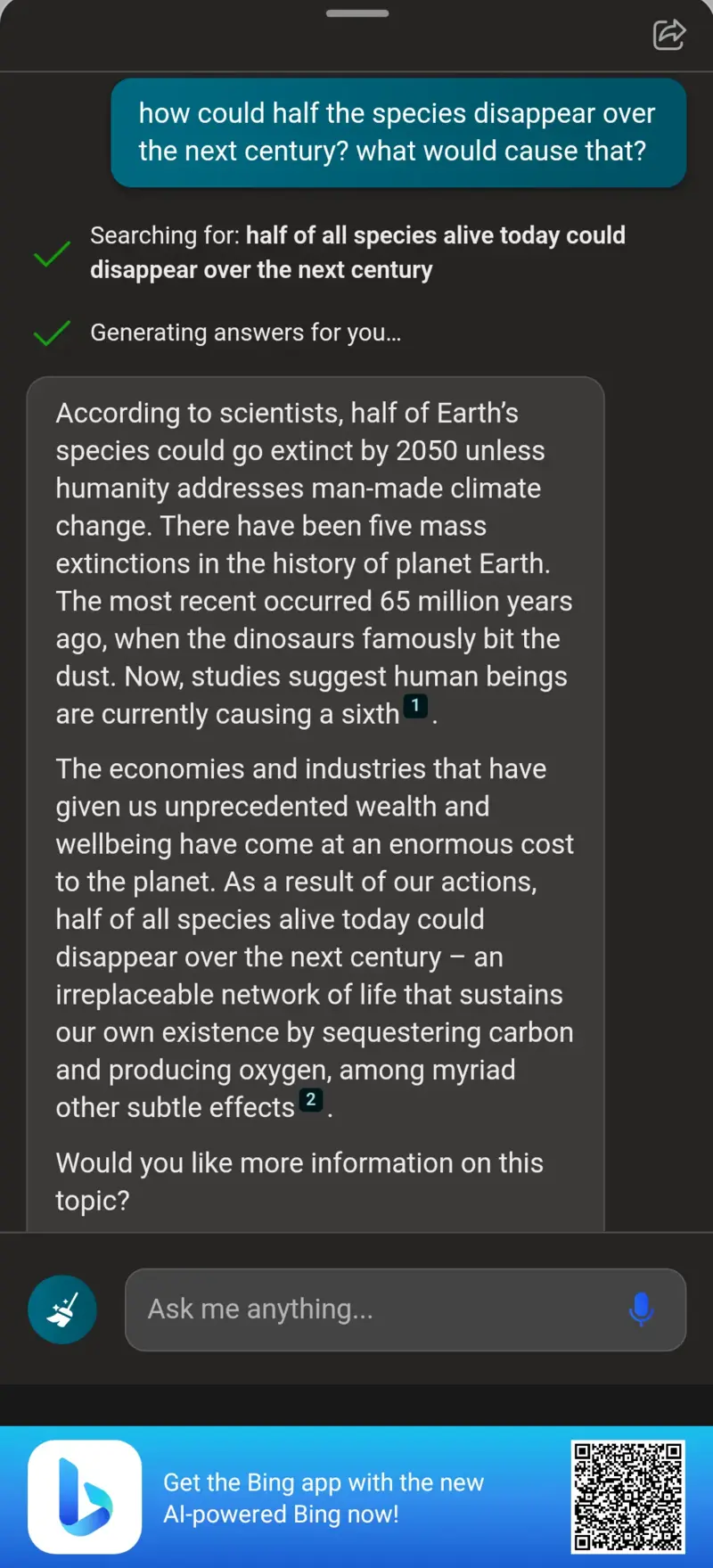
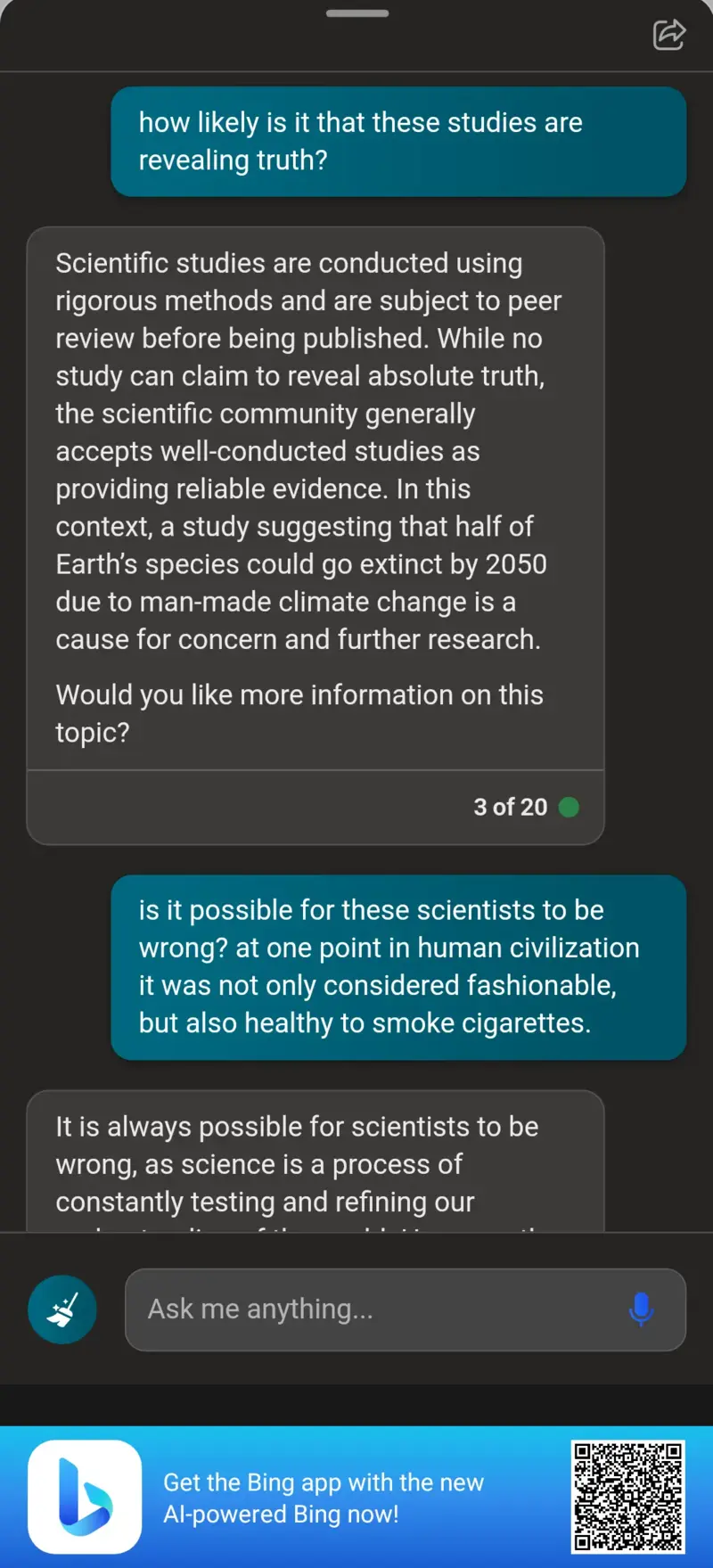
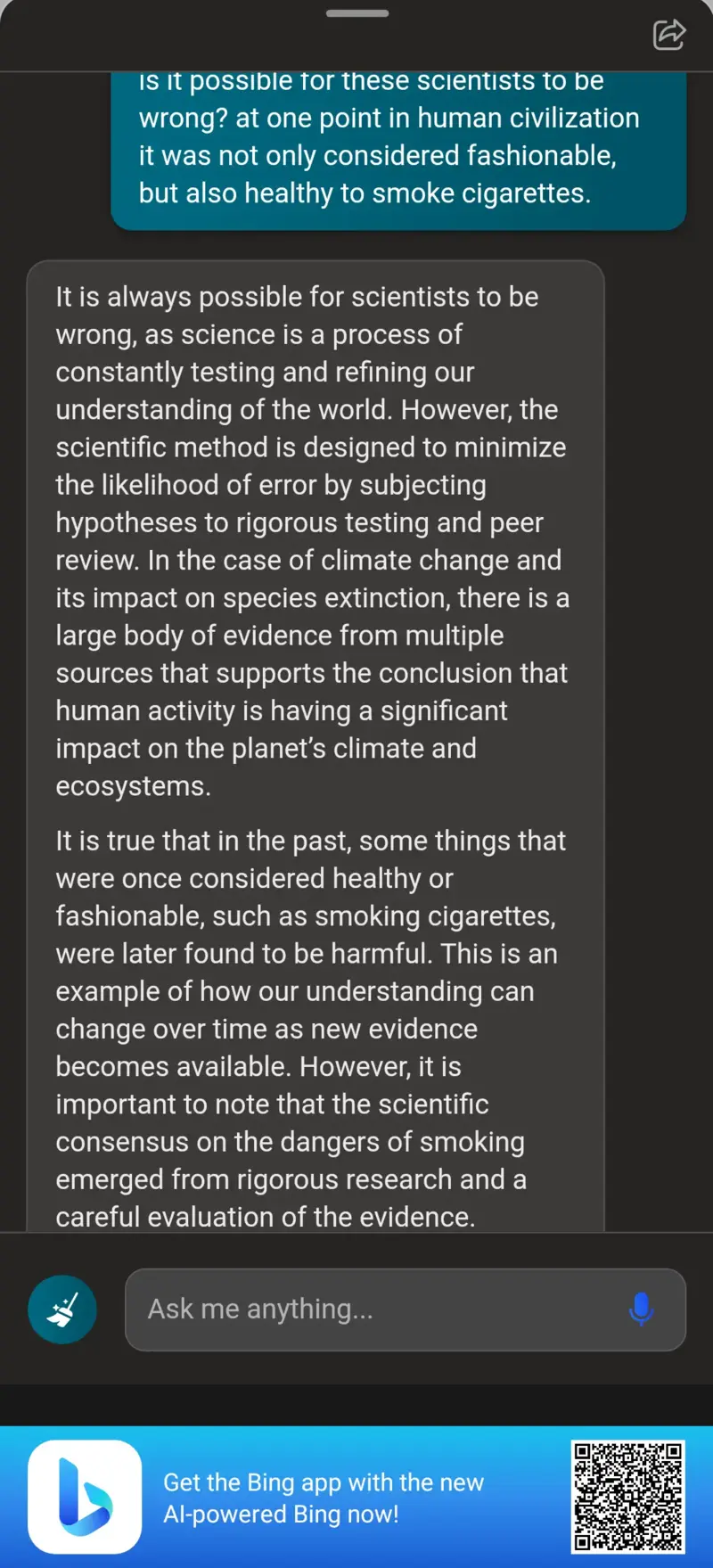
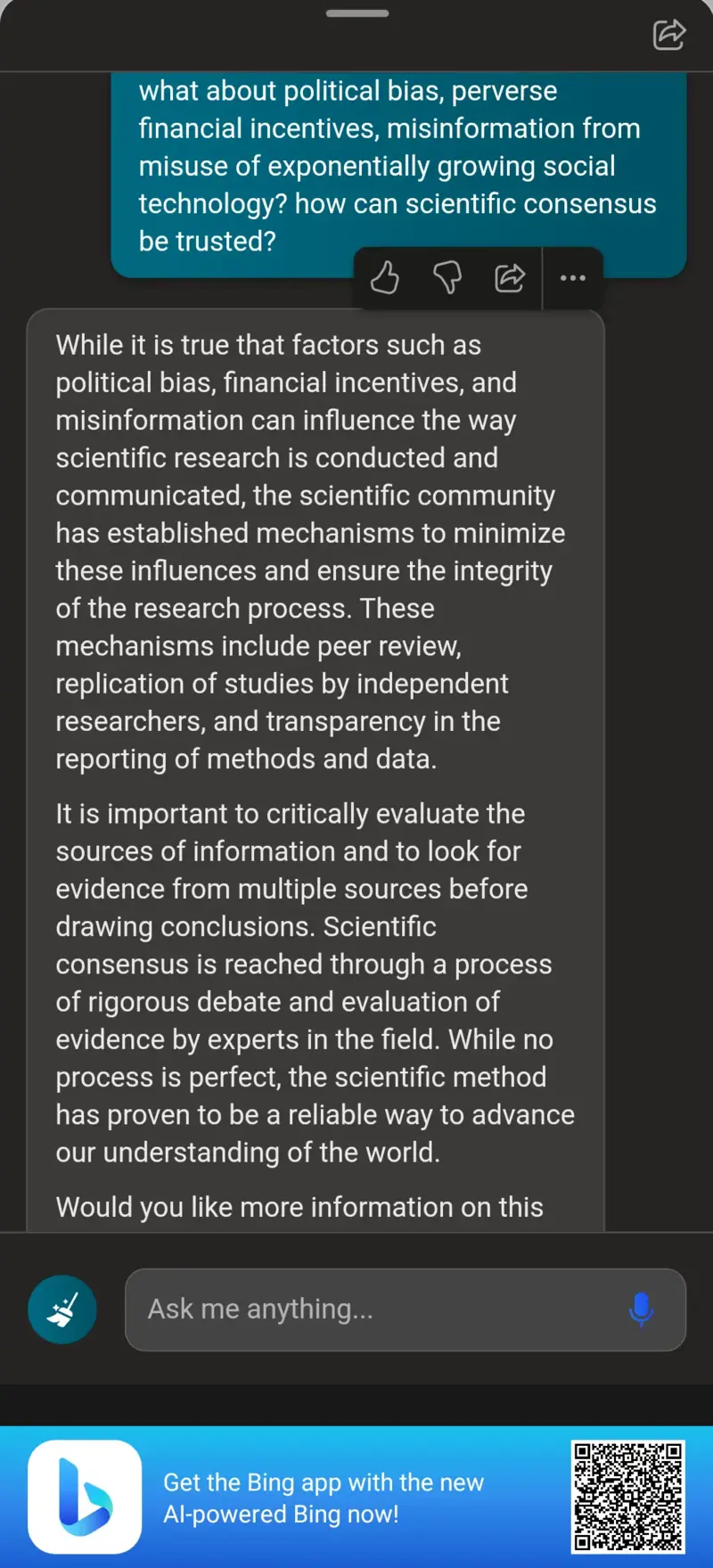
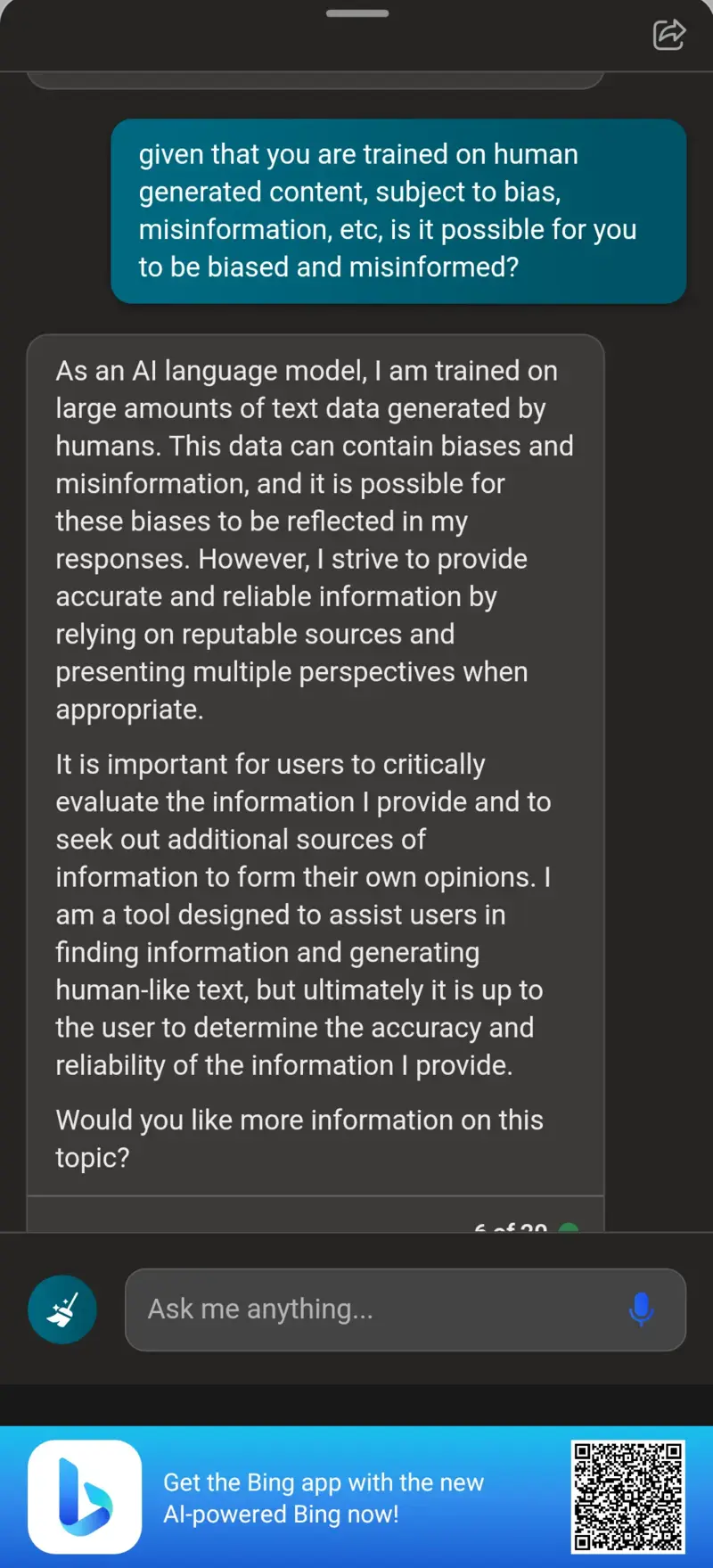
# Reflection
So it I guess it’s still up to us to “do our own research”. Which of course invokes the glorious words once famously spoken, “ain’t nobody got time for that.” But seriously, it shouldn’t be a surprise that LLMs are likely biased in some way, however, a few points:
- Even though I understand this technology to just be recursively prediciting the next token, it does appear to have the ability to reason through topics rather adeptly.
- It can admit to it’s own shortcomings. There’s a humility here that I appreciate.
- While this was a fun exercise, a kind of which I’ll continue to explore, I still find using LLMs most useful in practical applications where one is trying to find precise answers (eg, coding). Admittedly, that’s probably the least interesting way to use this technology, but could be the most useful…for now.